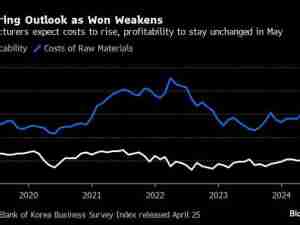Tax Carbon to Shrink the Trade Deficit With China
By: Ted Halstead | Apr 05 2017 at 07:30 AM | International Trade
When President Donald Trump assumes that any policy to curb greenhouse-gas emissions must be bad for economic growth, job creation and U.S. competitiveness, he has things backwards. This miscalculation extends to U.S. trade policy, the central focus of Trump’s meeting this week with Chinese President Xi Jinping. Trump says he wants to shrink America’s trade deficit with China, but the best way to do that would be to focus on the subsidies that China provides its companies through lax environmental standards.
China is several times less energy-efficient than the U.S., emitting far more greenhouse gases per unit of economic output. Whether the industry is steel, cement, clothing or electronics, this amounts to an implicit subsidy for dirty production in China, at the expense of U.S.-based manufacturers. The way to level the playing field is to penalize China’s carbon intensity.
The Trump administration has instead based its trade strategy on the outdated notion that China is a currency manipulator. These days, the renminbi is, if anything, overvalued, not undervalued. The White House has also toyed with the idea of a border adjustment tariff as proposed by House Republicans. America’s retailers are fiercely opposed, however, and this proposal would probably run afoul of World Trade Organization rules.
The shrewd play for Trump would be to pivot to a border carbon-adjustment policy, something that would benefit most American companies and be compatible with WTO rules. It would tax the carbon contents of imports from all countries whose environmental standards are weaker than American ones, and rebate any carbon fees paid by U.S. companies on the products they export to those countries. This would enhance our terms of trade and substantially reduce the U.S. trade deficit with China.
To make this border carbon-adjustment policy comply with WTO rules, the U.S. would also need to tax American companies for the carbon content of the goods they produce. But because U.S. production is so much less carbon-intensive than China’s, American companies would gain a competitive advantage. So far, some Republicans have resisted calls for carbon pricing, even from conservatives, fearing that it could inhibit growth and undermine job creation.
While such concerns may well apply to the heavy-handed climate regulations favored by Democrats, a well-designed, revenue-neutral carbon tax could stimulate economic growth and job creation. By replacing regulations with more efficient market-based incentives, it could spur technological advances and new infrastructure investment, and offer U.S. companies, especially those in the energy sector, price and regulatory stability. The result would be a smaller government, less pollution and more innovation.
Most of corporate America understands that the clean technology revolution now underway will drive growth, jobs and prosperity in the years ahead. If the U.S. weakens its environmental standards while other countries strengthen theirs, our country will inevitably cede leadership in many key industries. Perhaps this is why the White House has just indicated that it is considering a carbon tax.
As Trump has turned away from President Barack Obama’s climate-friendly policies, China has been all too happy to fill the void, and accept the newfound strategic and economic advantages of being regarded as the de facto global climate champion—even though its manufacturing remains relatively dirty. By pursuing the opposite course, Trump risks weakening American manufacturing in the name of protecting it, and allowing China to claim a title it does not yet deserve.
Trump recognizes that America has higher environmental norms than many of its trading partners, especially China, and that this divergence can hurt U.S. industry. But the smart response is not to cede economic and moral leadership by lowering American standards. It is rather to penalize other countries for having weaker ones. That is precisely what border carbon adjustments would do.
This column does not necessarily reflect the opinion of the editorial board or Bloomberg LP and its owners.








